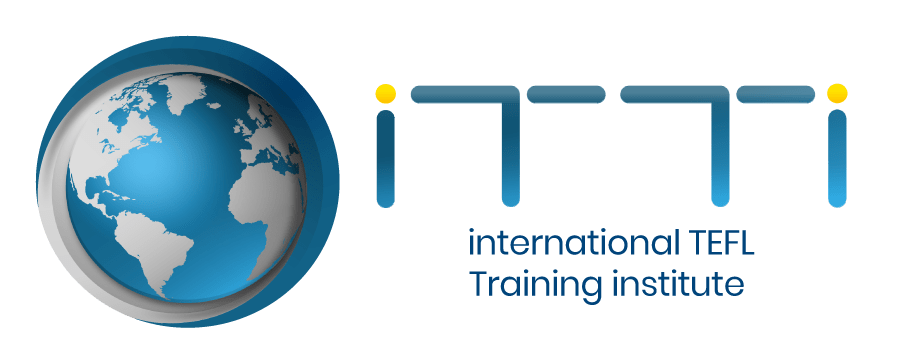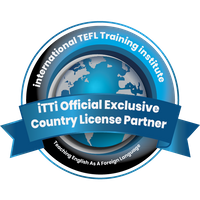“Education is the most powerful weapon which you can use to change the world.”
WHY TAKE A TESOL/ TEFL COURSE IN SYRIA
Damascus, the capital of Syria, is the oldest continuously inhabited city in the world. It has occupied a position of importance in fields such as science, culture, politics, art & commerce, and industry starting at the earliest time. It has been called Al-Fayha’a (the fragrant city), Al-Sham, Jollaq, and Pearl of Orient as Emperor Julian named it. It was mentioned in the Holy Qur’an as the many-columns city of Aram, “…who’s like has never been built in the land…”.
Nowadays, Damascus is a living museum spanning thousands of years. A city measuring time not by hours, days, months, or years but by empire whose rise and fall it has seen.
Some of the most important landmarks in Damascus are Umayyad Mosque, Azem Palace, St. Ananias Church, Damascus Citadel, old souqs like Al-Hamidieyeh and Midhat Pasha, Bimarstan Al-Nory, Saladin’s Tomb, St. Paul Church, and Al-Takieh Al-Suleimaniyeh.
OUR iTTi DAMASCUS TEFL INSTITUTE
They believe that education is a fundamental right, and everyone should have access to quality higher education. With this view in mind, they strive to create opportunities for those who have genuine aspirations and honest intentions, and who seek excellent quality in tuition, professional services, qualifications, and career prospects post-qualification.
Mission statement
Their mission is to place genuine education-minded graduates at genuine education providers. They aim to take leadership in the student consultancy industry, Immigration sector, and set examples for others with their distinguished quality of services for students and education providers. They strive to uphold the excellence of higher education and immigration by providing inclusive, competent, and professional support to graduates and educational institutions.
Their vision
To successfully place students for the course at an institution in the best interest of the student or their profile.
To promote the all-around development of student’s abilities and personalities and empower their potential.
To provide effortless and distinctive quality immigration services and commit to improving continually.
To maintain a high standard of professionalism, performance, and quality to establish exemplary excellence in higher education, and work together with prospective students and overseas colleges, universities, and associated organizations.
WORK IN DAMASCUS OR SYRIA AS A TEFL Teacher
Teaching English in Syria has dramatically improved during the last few years. As the country learned more and more about the importance of English, most Syrian schools teach English early on when students are four or five years old. There are even kindergartens that teach their young students English. Of course, there may be regional differences between people, but we can say that all people learn English starting when they are six. Teaching English in Syria is possible in local private schools, international schools, language centers, and NGO’s.
Prerequisites for Teaching in Syria
Foreign teachers need to have a work permit. To apply for that in your home country, you must have a BA/BS in a related field and an iTTi TEFL Certificate with Teaching Practicum. As schools like to see teaching experience, don’t go for the least expensive online course. This will not work in Syria. Your prospective school must support you with the visa application paperwork just like it is in other countries.
If you are a non-native speaker, your level of English must be perfect in order to be competitive. What is perfect? Level C1 or C2—not only in speaking but also in writing. If you are unsure, ask for our free proficiency test and learn how you can improve your performance if required.
Teaching Opportunities
There are positions in public schools, language centers, vocational schools, universities, and international schools.
Contract Length
Teaching contracts are usually one year but tend to become longer to 2-3 years with a bonus at the end of the time.
Salary & Benefits
Salaries for teaching English in Syria often range from $22,000 – $26,000 USD per year, considerably more for administrators. Compensation packages usually include housing or a housing allowance along with relocation money and end of contract bonuses. They include accommodation, flights, private health insurance. Overall, Syria may not top the pay scale in the Middle East, but you can be sure that they give you everything to make your life comfortable.
Healthcare System in Syria
Syria’s health system is the responsibility of the Ministry of Health. The system is relatively decentralized and focuses on offering primary healthcare at three levels: village, district, and provincial. As a result of the war, about 50% of healthcare facilities were damaged. Syria is trying to overcome the damages caused by the war and rebuilt medical facilities.
Out-of-pocket payments represent the leading source of healthcare financing in Syria. In 2008, out-of-pocket payments made up 61% of the total per capita expenditure on health in the country. The majority of these costs go to private healthcare providers. If you teach in Syria, your school will generally provide private health insurance coverage for you. That said, this is at the employer’s discretion as well as your agreement with the school. Check the terms of your contract.
Pharmacies
There are lots of pharmacies in the Damascus, many of which work six days a week (no Saturday). Pharmacies generally work from 8 am to 3 pm. You can call +963 11 221 1461 to find one or check the following website www.dam-pharmacy.com.
You should have no trouble finding important medications in Syria; however, some prescription drugs that are widely used in other countries may be illegal in Syria. Check on prohibited medications with the Syrian consulate in your country before departure.
Important Emergency Numbers
Syria’s primary emergency number is 112. It will connect you to the police and should be enough in most emergency situations. Other important numbers include:
All of the above numbers are toll-free.
When you call the emergency hotline in Syria, be prepared that you will be answered in Arabic. English and other-language-speaking operators may not be available upon request. With that, having an Arabic speaker by your side when you call the hotline can be very helpful.
Culture in the Syria
Syria is a traditional society with a long cultural history. Importance is placed on family, religion, education, self-discipline and respect. The Syrian’s taste for the traditional arts is expressed in dances such as the al-Samah, the Dabkeh in all their variations and the sword dance. Marriage ceremonies are occasions for the lively demonstration of folk customs.
Languages Spoken
Arabic is the official language of Syria and is the most widely spoken language in the country. Several modern Arabic dialects are used in everyday life, most notably Levantine in the west and Mesopotamian in the northeast.
In addition to Arabic, the following languages are spoken in the country, in order of the number of speakers: Kurdish, Turkish, Neo-Aramaic (four dialects), Circassian, Chechen, Armenian, and finally Greek. None of these languages has official status.
English and French are also spoken by Syrian citizens, mostly in urban centers and among the educated.
Religion
Religion in Syria refers to the range of religions practiced by the citizens of Syria. Historically, the region has been a mix of diverse faiths with a range of different sects within each of these religious communities. The majority of Syrians are Muslims, of which the Sunnis are the most numerous (formed mostly of Arabs, Kurds, Turkmens, and Circassians), followed by the Shia groups (particularly Alawites, Isma’ilis and Twelver Shi’ism), and Druzes. In addition, there are several Christian minorities (including Greek Orthodox, Greek Catholics, Armenian Orthodox, Armenian Catholics, Syriac Orthodox, Syriac Catholics, Nestorians, Chaldeans, Maronites, Latin Catholics and Protestants)
There is also a small Jewish and Yazidi community. Syria guarantees freedom of religion.
Food & Drinks
Syrian cuisine is a Middle Eastern cuisine that includes the cooking traditions and practices of modern Syria, merging the habits of people who settled in Syria throughout its history.
Syrian cuisine mainly uses eggplant, zucchini, garlic, meat (mostly from lamb and sheep), sesame seeds, rice, chickpeas, fava beans, lentils, cabbage, cauliflower, vine leaves, pickled turnips, cucumbers, tomatoes, olive oil, lemon juice, mint, pistachios, honey and fruits.
Since the beginning of the 21st century, selections of appetizers known as mezze have customarily been served along with Arabic bread before the Syrian meal’s main course, which is followed by coffee, with sweet confections or fruits at will. Many recipes date from at least the 13th century.
TEFL Courses in Damascus fill up quickly!
120-HOUR ON-SITE TESOL TRAINING
100% ON-SITE TRAINING
Total tuition: US $1,500
Deposit: $500, due at registration.
Balance payment: $1,000 due five business days before the first course date. The entire four-week TEFL course takes place in one of the many TEFL training centers. Students learn everything with a trainer face to face. The program comes with daily practical teaching of non-speakers of English over three weeks. The TEFL trainer observes the classes and coaches the prospective teacher to higher levels of performance.120-HOUR COMBINED TESOL TRAINING
75% on-line/25% on-site training
Total tuition: US $1,200 Deposit: $500, due at registration. Balance payment: $700 due five business days before start of the Teaching Practicum. This TEFL program has the same content as the on-site program. The theory of teaching English is studied on-line with a tutor. Upon completion of the online part, students go to the TEFL training center for seven days and practice teaching English under the supervision of an experienced TEFL trainer.Teaching Praticum Dates
|
Course Dates
|
Session
|
Timing
|
Session
|
Timing
|
5 June - 3 July 2023
|
Night Session
|
6:00 – 9:00
|
Morning Session
|
10:00 – 1:00
|
|---|---|---|---|---|
|
3 July - 7 August 2023
|
Night Session
|
6:00 – 9:00
|
Morning Session
|
10:00 – 1:00
|
|
7 August - 11 September 2023
|
Night Session
|
6:00 – 9:00
|
Morning Session
|
10:00 – 1:00
|
|
11 September - 16 October 2023
|
Night Session
|
6:00 – 9:00
|
Morning Session
|
10:00 – 1:00
|
|
16 October - 20 November 2023
|
Night Session
|
6:00 – 9:00
|
Morning Session
|
10:00 – 1:00
|
|
20 November - 25 December 2023
|
Night Session
|
6:00 – 9:00
|
Morning Session
|
10:00 – 1:00
|
Meet Our iTTi TEFL Syria Team

In 2010, He moved overseas and joined – Score Testing Center in Sharjah, United Arab Emirates as Computer Tech-support. For his excellent handling of various projects, he was promoted to operations manager in 2010, where he was responsible for overseeing the various projects within the company’s scope and providing analyzed business strategies within the organization. He also helped to negotiate new contracts, taking into account company performance as well as the capabilities of employees and resources. Through his different experiences successfully driving value and growth at companies, Randy is able to apply his experiences to handle the different scenarios facing the companies.
Randy Santiago
iTTi - Syria
How to Apply for a TESOL Course
Step 1
To begin the admission process for iTTi Damascus, you must first choose your starting date, complete the online application form, and pay a deposit of US $500.
Step 2
An iTTi Enrollment Counselor will then contact you with instructions on how to complete the required English proficiency assessment test. If you are not a the native speaker, you must obtain a B2/C1 level. A certificate will be provided by iTTi School of English
Step 3
Once you are notified of your acceptance to iTTi in Damascus, your remaining tuition balance is due 30 days prior to your course starting date.



